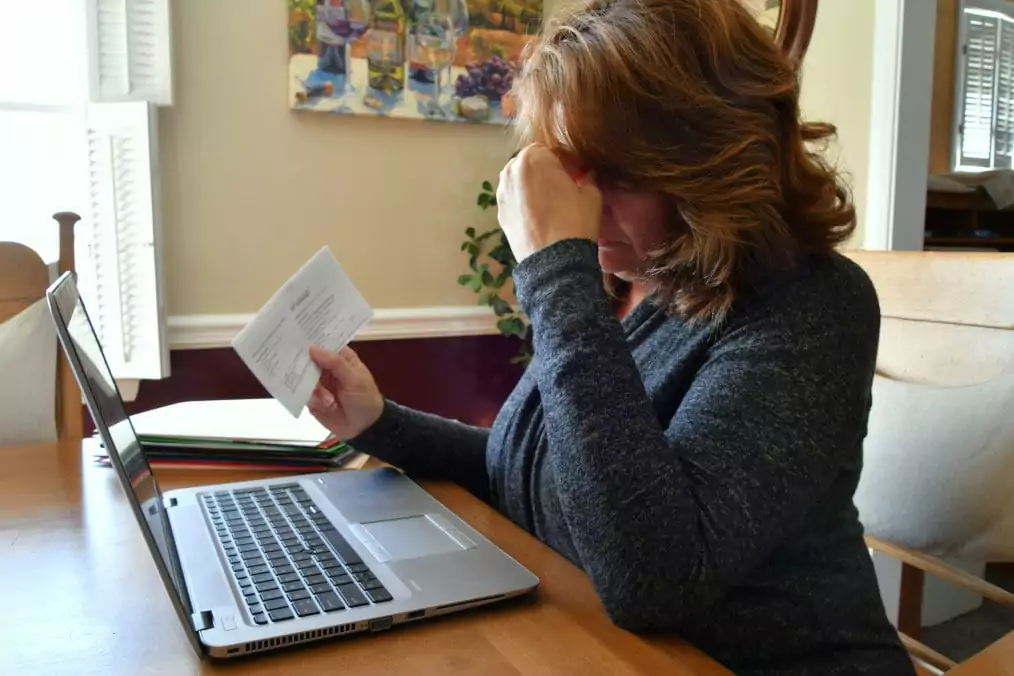- Law Practice Areas
- Resources For You
- Child Support Calculator
- Take Our Divorce Quiz
- Protect Your Assets and Net Worth During Divorce
- Blog
- Family Law Videos
- Your Guide to California Divorce
- Your Guide to Child Custody & Support
- Everything You Need to Know About Getting a Prenup
- An In-Depth Look at Divorce Mediation
- Top Considerations for High Asset Divorce
- Our Legal Team
- Locations
- Reviews
- Contact

What is a community property state?
Under the California Family Code section 760, community property is “all property acquired by a married person during marriage while domiciled in California.” Under California Family Code section 770, separate property is property owned before marriage, or acquired during the marriage as a gift or inheritance, including the rents or profits from that property.
What is community vs. separate debt?
Just like community property, a debt will be classified as community (or marital) if the obligation was incurred by either spouse during the marriage. (Family Code section 903.) This means the community estate, or all the income and assets of the marriage, will be liable or responsible for paying any debts incurred by either spouse during the marriage.
Can I be held liable for my spouse's credit card debt or child support arrears?
In short, yes - this is not limited to debts that are incurred by either spouse for the benefit of the marriage. For example, if a husband takes out a loan exclusively for his own personal gain or racks up a large amount of credit card debt without his spouse knowing, the marital estate will still be responsible for paying off this debt.
But, the “innocent” spouse (the spouse who didn’t sign up for or benefit from their spouse's debts incurred) may have a claim of reimbursement of her share of the community estate that is used or was used to pay the spouse's debt off.
It is also possible for the community estate to be responsible for one spouse’s child or spousal support obligation from a previous marriage. (Family Code section 915(a).) This is true even though the current spouse was not a party to the debt, is not personally responsible for paying support, and has not consented to its payment out of the community estate.
But, if it can be shown that the spouse who owes spousal or child support from another marriage had sufficient separate funds available to pay off that support obligation but those funds were never used, then the community estate may be reimbursed in the amount that was available in separate funds.
This essentially means the other spouse would get back their half of the community funds used to pay another spouse’s prior child and spousal support.
Reimbursement when separate property is used to pay community debt
Often spouses will use their joint account to assist in paying off community debts, or each other’s separate debts. But what if it’s the other way around?
Either during the marriage or upon divorce, a spouse may seek reimbursement for expenditures of their separate funds to pay down a community debt.
When are you not entitled to reimbursement?
The first hurdle a spouse seeking reimbursement must overcome is a presumption under the law that the payment using separate property funds was a gift to the other spouse or the community estate. Under a well-known California family law case, “a spouse who, during marriage and before separation, voluntarily uses separate property to satisfy a community debt is presumed to make a gift to the community and thus is not entitled to reimbursement absent an agreement to that effect.” (Marriage of Lucas, (1980) 27 Cal.3d 808, 816.)
Note that this long-standing “gift presumption” is not applied in payments using separate funds after the parties have separated. At that point, there is no reason to presume the party using separate property funds is giving a gift.
Therefore, it is common to request reimbursements for debts paid down after separation but prior to the final divorce, under California Family Code section 2626. There is no need to first overcome the “gift presumption.”
However, the party seeking reimbursement will need to show that the funds used to pay off a community debt were in fact separate funds. This usually means providing the other party with receipts or banks statements, etc.
This presumption is also not applied when separate property amounts are used as a “contribution” to the “acquisition of” community property. In that situation, the paying spouse has a right to “trace” back the separate property amount under California Family Code section 2640 (unless, of course the right to reimbursement was waived in writing).
What about student loan debt?
With the cost of education skyrocketing through increased tuition and student loan interest rates, many students find themselves in crippling debt by the time they are finished with school.
For a married couple, this usually means that while one spouse is studying hard at school, the other spouse is making up for a lack of income by working extra jobs, or carrying the community under his or her income alone.
This is usually done with the expectation that the community will eventually benefit from the earned degree and the enhanced earning capacity. Sometimes, however, the parties divorce before the community estate is able to reap this benefit. Upon divorce, many couples feel the need to be reimbursed for the hard work they put in to put the other partner (or each other) through school.
Because the community estate cannot acquire an “interest” in a spouse’s professional education or degree (and subsequent higher earning capacity), this is not divisible “property” like other assets. Fortunately, California Family Code section 2641 recognizes a right of reimbursement for this economic inequity through the property division process.
As far as those costly education loans go, any part of the loan that remains unpaid that the time of the divorce (not separation) will be assigned to the spouse who obtained the education. (California Family Code section 2627.)
If you have any questions about the what assets or debts are classified as community or separate property, and if you can seek a reimbursement for any funds contributed to those debts, make an appointment with an experienced attorney at Cage & Miles, LPP today.








